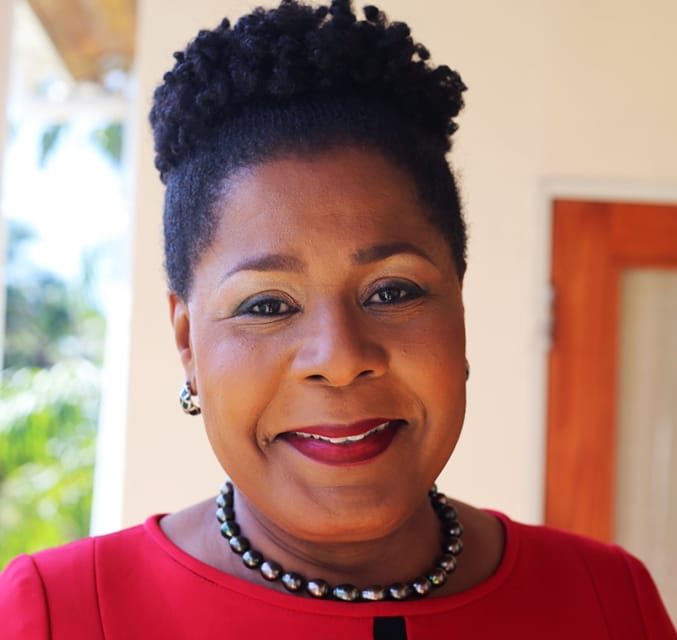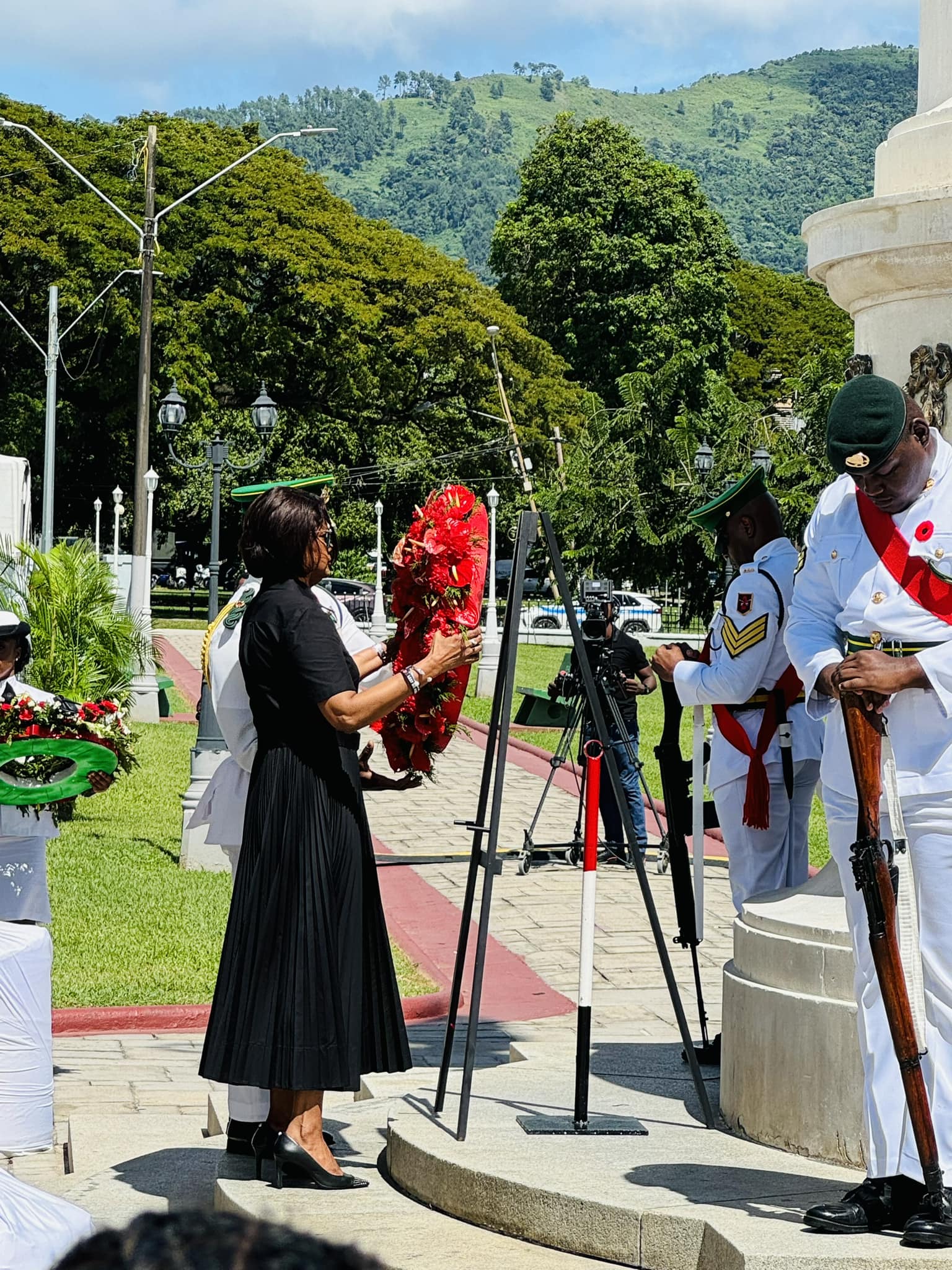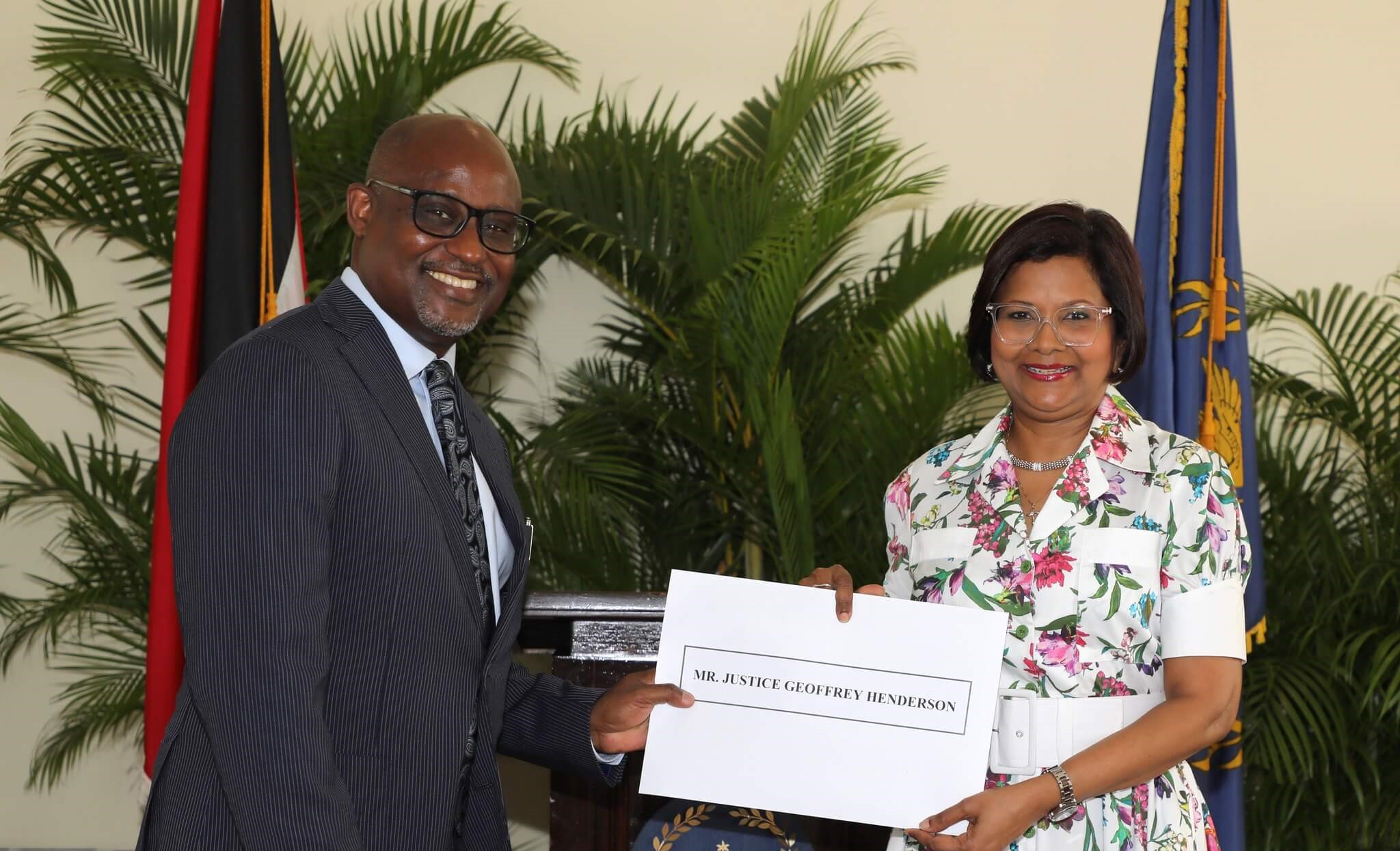Climate change is a hot topic, pardon the pun, in local, regional and international fora. We lament the deleterious effect that natural phenomena and human action have had on our planet, making environments inhospitable, causing cataclysmic weather events and adversely affecting the sustainability of countries, in particular small island states. The rhythms and seasons of nature have become ad hoc and disordered and predictability seems to be a thing of the past. We scramble to forecast meteorological conditions and are forced to find ways to mitigate and deal with the vagaries of climactic tendencies. Certitude of seasons appears to be ancient history.
There is no such variability in the Christmas season when Christians world-wide remember and celebrate the birth of the Messiah—when the words of the prophet Isaiah that “the virgin will conceive and bear a child and they shall name him Immanuel, meaning God is with us” came to pass. For over 2000 years, Christmas and its meaning have remained steadfast, its essence is the Incarnation; God becoming man—what shepherds in the fields were told then remains real today. A saviour was born and it is good news of great joy for all the people.
In media language a spin-off is derived from an already existing work and focuses on more details and different aspects from the original, and the Seasons of Hope, Peace, Joy and Love are spinoffs or features of the Christmas season and form an integral part of the narrative. While they have a special and specific meaning for the Christian faithful, these seasons can be tapped into, assimilated and enjoyed by everyone.
Sadly, Christmas is not an unqualified time of celebration and rejoicing for all our citizens, for many, it is difficult and can even be deeply distressing. The contrast between a season of celebration and a season of want and despair is particularly poignant.
This is a good time for the renewal of hope with its universal ability to change perspective. Hope does not obviate the existence of our trials and tribulations, but gives us the strength to keep going, fortified by the knowledge that, as the old Persian adage states, ‘This too shall pass’. According to psychologist and hope researcher C.R. Snyder, ‘Hope implies that there is the possibility of a better future.’
An important aspect of hope is waiting patiently for what we do not have, even as we do all within our power to improve our situation, refusing to be defeated by present circumstances, and pressing confidently toward a better outcome. Hope anchors us, redirecting our gaze from the immediate issues and troubles of the world to a vision of peace and goodwill to all men.
It may seem counterintuitive to expect a season of peace when living in a climate of peril and insecurity—the alarming and appalling murder rate, recent devastating flooding, and the skyrocketing cost of living are among the things which, if allowed, can surely disturb or displace any feeling of peace.
Despite being buffeted by external factors we can experience a peace that comes from within. Christians express it as a peace that transcends all understanding. Such peace allows us to keep focussed on and work our plans and accomplish our goals even as we exert energy and effort to deal with challenges and hindrances. It is the ability to maintain a state of harmony, tranquillity, serenity and calm amid the tumult of daily life. Some practise prayer, mindfulness, meditation or yoga in an attempt to be internally unmoved and undaunted when confronted by the vicissitudes of life. It might need to be a daily discipline in order to be successful.
“Joy to the World, the Lord is come”, goes the quintessential Christmas staple; one would be hard pressed to find any Christmas carol in which joy is not mentioned. Joyfulness and rejoicing are practically synonymous with Christmas. Happiness and joy may intersect but they are not one and the same. Happiness can be fickle and transitory, dependent on one’s current state of affairs. True joy is unshakeable and endures through trial and hardship, even in deep grief can Christian joy be experienced.
Many families across the nation will be without the trappings of Christmas or even bare necessities this year and one may well wonder how they can be joyful in this setting. There is no easy answer, however, the generosity of benefactors, the presence and camaraderie of friends and family, the sharing of whatever little one has and the comfort of faith are all potential sources of joy. Biblically, joy and thankfulness are inextricably linked, perhaps because a spirit of gratitude allows us to appreciate the many blessings that we take for granted, especially when we are in need.
It may take an active search, and a deep dive, phrases not usually associated with joy, to unlock that state of being, but it is not impossible.
The season of Love is the one that is easiest for us to embrace. When we give gifts, charity, donations and cheerful greetings at Christmas time it is understood to be a symbolic imitation of that first Christmas gift—Christ Jesus. A gift given in love. The precious and priceless gifts of compassion, empathy, patience, presence and a listening ear are all demonstrations of love at no cost. We can give these valuable gifts freely at Christmas and at every other opportunity all year through.
Whatever our situation we can feel and demonstrate love to those nearest and dearest and can extend it to those outside of our immediate circle. The gold standard of love is set out in the Biblical saying, “For God so loved the world, that he gave his only Son, that whoever believes in him should not perish but have eternal life.”
We are not often called upon to give such sacrificial love, although the heroic acts of many of our citizens, often at great personal risk are apt demonstrations of this divine principle.
In this Christmas season let us love each other freely, extravagantly, deeply and unconditionally, and may the seasons of Hope, Peace, Joy and Love continue long after the twelve days of Christmas are over.
Merry Christmas!








